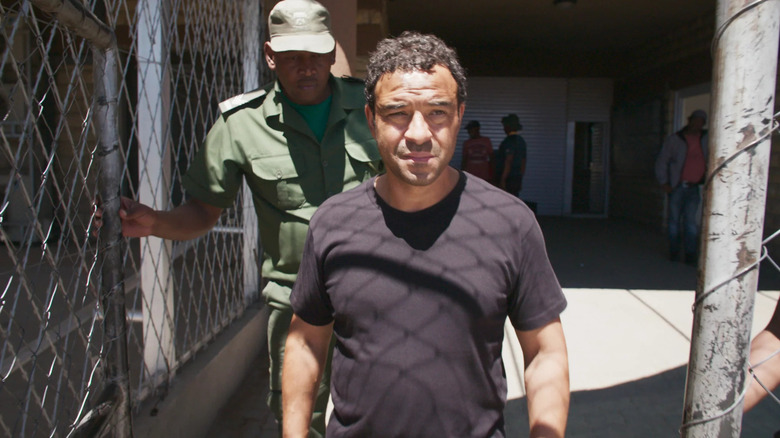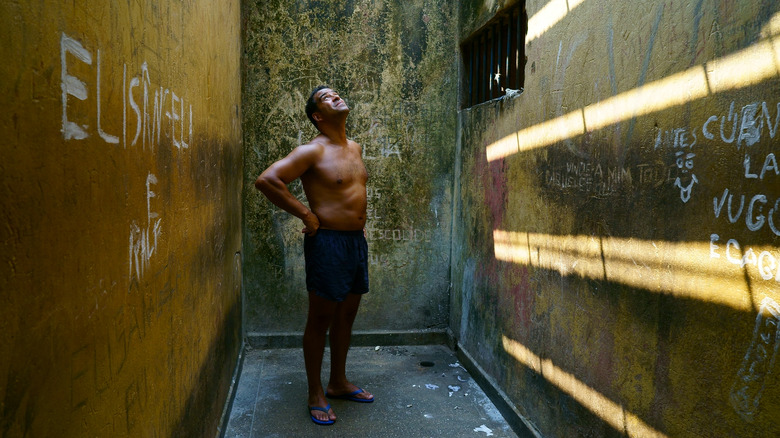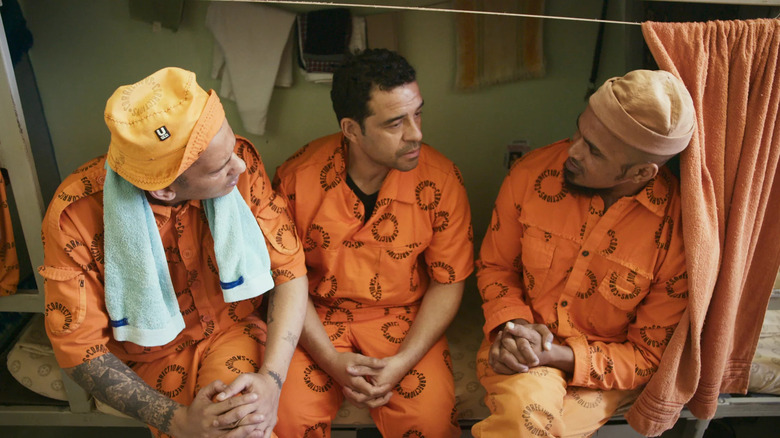The Daily Stream: Inside The World's Toughest Prisons Is An Empathetic View Of Life Behind Bars
The series: "Inside the World's Toughest Prisons"
Where you can stream it: Netflix
The pitch: Host Raphael Rowe knows a thing or two about life behind bars. After being convicted and sentenced to life in prison in the U.K. for a murder he didn't commit, he decided to start researching law and criminal justice. After 12 long years, he was able to prove his innocence, and shortly after he began working with the BBC's Channel 5 to create documentaries about crime, justice, and prison reform. Now, he travels the globe and goes inside of the world's toughest prisons to show the human side of some of society's most inhumane places. He spends a full week living with the most hardened criminals on their terms as a fellow prisoner, sharing their experiences with the world and reminding viewers that inmates are people.
There are plenty of exploitative reality shows about prisons out there, following inmates and capitalizing on their trauma, but "Inside the World's Toughest Prisons" is more interested in making its viewers challenge their own preconceptions of the incarcerated and incarceration itself. Events and situations are related simply and as free of bias as possible, and Rowe occasionally finds himself being sympathetic to both guards and the prisoners he's surrounded with. The series is eye-opening and sheds a lot of light on the nature of crime and punishment worldwide.
Why it's essential viewing
Unless you've been incarcerated or know someone who has, most people don't really think about prisons very often. Prison is a vague concept, a place where "bad people" are kept away from the rest of civilization. Some people might think about things like punishment versus rehabilitation, but for the vast majority of people, what's out of sight is out of mind. Rowe takes cameras deep into the bellies of some of the world's most notorious prisons, and in doing so, he highlights the need for people to care about prisoners and prison reform. Rowe understands how to survive in the prisons and gets access no one else possibly could, engaging with his fellow inmates as human beings and learning their stories. Some of them are funny, some are scary, but most are absolutely heartbreaking.
Rowe knows all too well that innocent people can end up incarcerated, and even those that are guilty of their crimes are often punished well beyond what's decent. As he extends empathy and genuine interest toward the prisoners, they open up, and it's hard not to find yourself wishing for some of them to get a second chance. In many of the prisons Rowe visits, the inmates are doomed to a life of constant misery. Some prisons are like miniature cities run by gang lords, while others are brutally secluded and segregated, keeping the prisoners completely isolated. These kinds of prisons only create more crime, as the recidivism rates for prisoners returning to prison after release run incredibly high.
Even-handed and open-hearted
It's unusual to find a crime documentary series with this much empathy, but Rowe's calm, gentle presence at the center of everything makes this potentially exploitative show into something important and eye-opening. The show's title sounds like something you'd see on a sensational TV show like Prison Break, or on Investigation Discovery, where the prisoners are painted as monsters and the portrayal of law enforcement is practically police propaganda, but it's a different beast entirely. Both inmates and their keepers are treated with an even hand, viewed simply as human beings trying to survive in a harsh world. Some prisons and their systems of rehabilitation are praised for trying to be humane, like season 6's Central Jail of Nicosia in Cyprus. Other prisons and their conditions are clearly condemned by Rowe and the series, though he doesn't shy away from the difficulties faced by those trying to maintain the law in some of the world's poorest and most crime-ridden areas.
"Inside the World's Toughest Prisons" is a vital and humanistic look at how we treat people who have been discarded by society. It highlights just how easy it is for someone to end up on the wrong side of the law, especially in places where the laws are ever-changing and harsh. The series is thought-provoking, occasionally inspiring, and mostly a reminder that we all need to treat one another with less judgment and more understanding.


